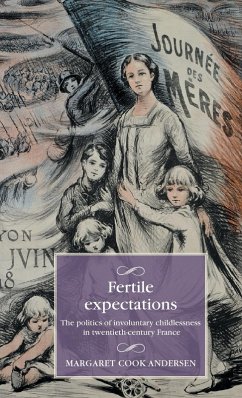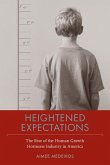An engaging history of motherhood, demography and infertility in twentieth-century France, this book explores fraught political and cultural meanings attached to the notion of an 'ideal' family size. When statistics revealed a steady decline in the birthrate, concerned citizens feared France was facing depopulation. Pronatalist activists pushed for financial benefits, propaganda and punitive measures designed to increase the birthrate. Motherhood figured prominently in political and medical discussions of fertility. Pronatalists blamed women for allegedly opting for smaller families or choosing a childfree existence, in defiance of the nation's demographic needs. This book situates involuntary childlessness within this discussion of motherhood and demography. Then, as now, many French women and men experienced fertility troubles when trying to begin or expand a family. Fertile expectations explores these intimate struggles at a time when pronatalist propaganda portrayed small families and childless households in a negative light. The early to mid-twentieth century was also a period marked by innovations in fertility medicine, growing cultural awareness of artificial insemination by donor, and changing laws and cultural norms surrounding child adoption. These practices offered new ways of responding to suspected or confirmed infertility and formed part of a growing expectation of being able to control one's fertility and family size. This book presents the political and cultural context necessary for understanding why private questions about when to start a family, how many children to have, and how to cope with involuntary childlessness, evolved and became part of state efforts to encourage population growth.
Hinweis: Dieser Artikel kann nur an eine deutsche Lieferadresse ausgeliefert werden.
Hinweis: Dieser Artikel kann nur an eine deutsche Lieferadresse ausgeliefert werden.








